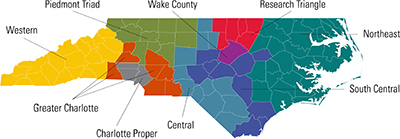Requirements
- 100 Hours of Workplace Safety, Health or Environmental Training Required – 60 hours must be Emergency Preparedness-specific
- 75 hours must be earned through at least one of the three MESH program sponsors:
- Accepted CORE courses, taken through one of the three MESH program sponsors:
- Maximum 25 hours can be counted from “Other” training providers who are not MESH program sponsors
- 5 year limit
- All MESH credit hours must have been earned within the previous 5 years at the time you reach your 100 hours
- Courses are credited only ONCE
- A course cannot be applied toward more than one type of MESH certificate
- The same course title cannot be counted more than once for the same certificate
- Only non-credit continuing education hours can be accepted
- Previously earned degrees, work experience or other certifications are not counted towards MESH
Additional Information
- Several Free EP-specific hours can be taken through FEMA but would be counted as part of the maximum 25 hours allowed from “Other” training providers.
- IS-230.D: Fundamentals of Emergency Management – 6 hours
- IS-235.C: Emergency Planning – 5 hours
- IS-363: Introduction to Emergency Management for Higher Education – 3 hours
- IS-700.B: An Introduction to the National Incident Management System – 4 hours
- IS-800.C: National Response Framework, an Introduction – 3 hours
- IS-907: Active Shooter: What You Can Do – 1 hour
- First Aid and CPR can be counted as a workplace safety, health or environmental topic and would be considered EP-specific
- Unless otherwise indicated on the completion card or certificate, we will use contact hours specified by the Red Cross
- If training was not received through one of the MESH program sponsors, these hours will be counted as part of the maximum 25 hours allowed from “Other” training providers
- Maximum 10 hours can be earned by attending an approved NC Safety School or Conference
- Attendance hours will be treated as hours earned through a MESH program sponsor
Sample EP-MESH Curriculum
- 40-HR HAZWOPER – 40 hours (EP-specific)
- Emergency Preparedness and On-Site Response Planning – 30 hours (EP-specific)
- OSHA 511 Standards for General Industry – 30 hours
TOTAL 100 hours
Other Emergency Preparedness-specific Elective Topics
Courses considered EP-specific must be related to learning how to analyze, identify, measure and control workplace hazards or stressors that can cause sickness, impaired health, or significant discomfort in workers through chemical, physical, ergonomic or biological exposures. Here are some examples of EP-specific topics:
- OSHA 7105 Evacuation and Emergency Planning – 7.5 hours
- OSHA 7210 Pandemic Illness and Workplace Preparedness – 5.5 hours
- OSHA 7215 Silica in Construction, Maritime, and General Industries – 7.5 hours
- 24-Hour Hazardous Material (HazMat) Technician-Level for Emergency Response – 24 hours
- 24-Hour HAZWOPER for Hazardous Waste Site Workers – 24 hours
- OSHA 5600 Disaster Site Worker Trainer Course – 24 hours
- OSHA 5602 Update for Disaster Site Worker Trainer Course – 7.5 hours
- 8-Hour Hands-On HAZWOPER Refresher – 8 hours
- Ready Business Disaster Preparedness – 4 hours
- Blood-borne Pathogens
- Workplace Violence
- Personal Protective Equipment
- Fire Protection
- Exit Routes/EAP/Fire Prevention
- Stop the Bleed
- Fire Extinguishers
- Active Shooter
- Preparing for Natural Disasters
- Mold
- Disaster Site Training
- Extreme Heat Exposure
- Hazard Communication
The NC Department of Labor also offers free webinars covering many of these topics, worth 1.5 hours each. View their schedule HERE.
The Safety and Health Council of NC also offers courses covering many of these topics. View their list of courses HERE.







